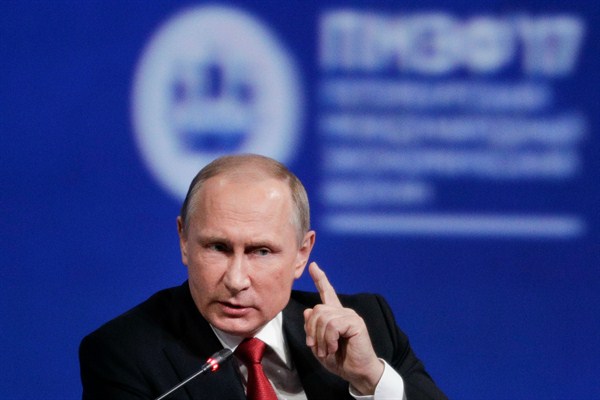After President Donald Trump reluctantly signed legislation in August imposing new U.S. sanctions on Moscow for its interference in the 2016 U.S. presidential election, Russia’s parliament last month drafted a bill that would try to shield Russian banks from further sanctions by obscuring their investments in the state-controlled arms industry. The United States and the European Union have imposed multiple layers of sanctions on Russia since 2014 for its actions in Ukraine. In an email interview, William Courtney, an adjunct senior fellow at the RAND Corporation and former U.S. ambassador to Georgia and Kazakhstan, discusses the impact of Western sanctions in Russia, including the backlash in Moscow.
WPR: What impact are U.S. sanctions having on the Russian economy?
William Courtney: The impact is significant, especially for broad “sectoral sanctions.” These restrict the availability of debt-financing for certain Russian financial institutions. They also ban the provision of goods, services and technology for the exploration or production of certain oil and gas resources in Russia, in its claimed maritime area and “extending from its territory.” Sectoral sanctions also constrain the supply of certain items to the Russian defense establishment, or for use in oil and gas exploration and production in Russia, including in Arctic offshore locations and shale formations.

